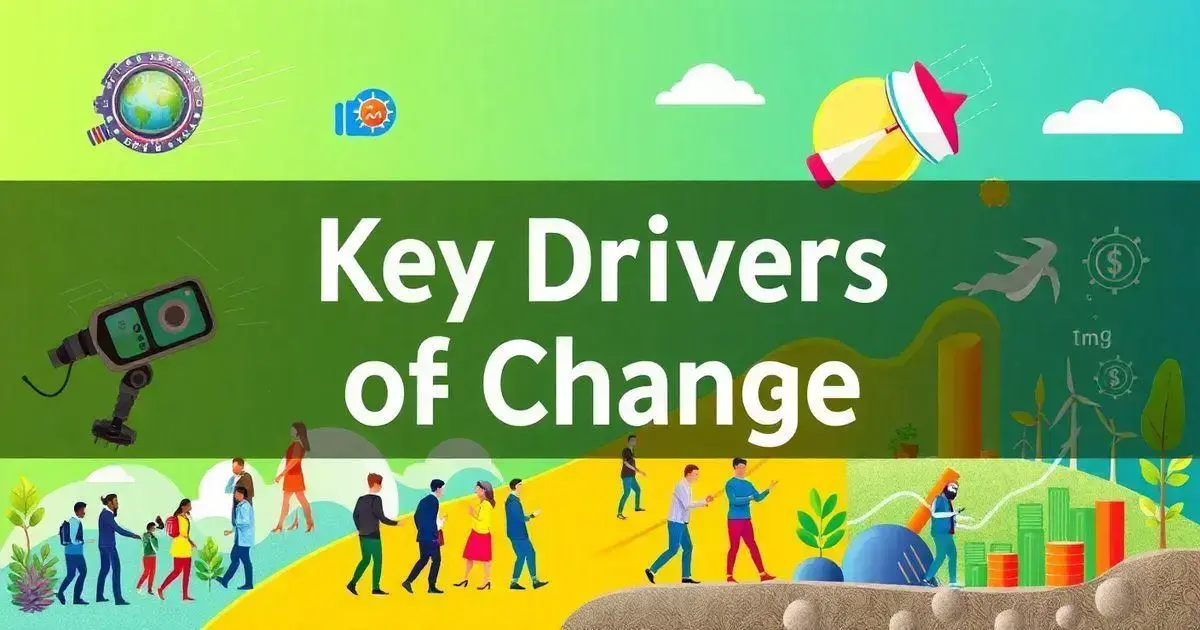Innovation in African industries is reshaping the continent’s economic future, driving progress and creating new opportunities. From agriculture to fintech, technological advancements are redefining traditional practices and introducing efficient solutions.
Across various sectors, businesses are leveraging these innovations to enhance productivity and competitiveness in local and global markets. This wave of transformation highlights Africa’s growing potential as a hub for groundbreaking ideas.
Eager to explore how innovation in African industries is revolutionizing the economic landscape? Dive deeper to uncover inspiring examples and impactful trends!
Overview of Tech Innovation in Africa
Innovation in African industries is reshaping sectors, harnessing cutting-edge technologies to drive growth and efficiency. Both startups and established companies are leveraging digital tools to enhance productivity and elevate service delivery.
Mobile technology, for example, has become a transformative force, enabling access to critical information and services even in the most remote areas.
Cloud computing is simplifying data management, allowing businesses to scale effectively while reducing operational costs. Additionally, social media platforms are revolutionizing communication and marketing, empowering African enterprises to connect with broader audiences.
These developments illustrate how innovation in African industries is creating new opportunities and fostering economic growth.
The impact spans multiple sectors. In agriculture, tech-driven solutions like precision farming and digital marketplaces are providing farmers with better tools and resources. Similarly, the healthcare sector is adopting innovations such as telemedicine and electronic health records, significantly improving patient care and accessibility.
These advancements highlight how innovation in African industries continues to tackle challenges and redefine possibilities.
The ongoing tech revolution positions Africa as a key player on the global stage. With innovations transforming industries and improving lives, the continent is poised for significant growth, unlocking its vast potential and paving the way for sustainable development.
Key Drivers of Change

The key drivers of change in African industries are numerous and dynamic. Mobile technology is a significant force, providing easy access to services and information. This evolution enables businesses and individuals to connect and collaborate like never before.
Second, internet connectivity has improved rapidly, allowing communities to engage with global markets and share ideas. This connectivity opens doors for innovation and growth.
Additionally, the rise of the youth demographic in Africa fuels a culture of entrepreneurship and creativity. Young innovators are seeking to address local challenges with tech-driven solutions.
Furthermore, government support and policy reforms are encouraging startups by providing funding and infrastructure.
Lastly, collaboration with international partners is fostering knowledge exchange and resource sharing. These combined factors are leading to unprecedented growth and transformation in African industries.
Case Studies of Successful Innovations
Jumia is known as the ‘Amazon of Africa’, and it has transformed e-commerce in multiple countries by providing a platform that connects buyers and sellers, helping many local businesses thrive through online sales.
m-Pesa is a mobile money service in Kenya that revolutionised financial transactions, allowing people to send and receive money via mobile phones, significantly improving financial inclusion for those without traditional banking access.
Twiga Foods is an initiative in Kenya that streamlines the agricultural supply chain by connecting farmers with vendors through technology, providing a stable market for farmers and ensuring consumers get fresh produce at competitive prices.
These case studies illustrate how tech innovations are addressing local challenges, enhancing efficiency, and creating new markets across Africa.
Challenges Facing the Industry

Despite the rapid growth of tech innovation in African industries, several challenges persist. First, infrastructure deficit remains a significant barrier. Many regions still lack reliable electricity and internet connectivity, which hinders the adoption of new technologies.
Additionally, limited access to funding can stifle startups and prevent businesses from scaling their operations effectively. Without financial support, many innovative ideas struggle to get off the ground.
Furthermore, regulatory hurdles can slow progress. Complex laws and regulations regarding technology use can deter businesses from implementing new systems, while also making it harder for entrepreneurs to navigate the market.
There is also the challenge of skill gaps in the workforce, where many workers lack the technical expertise required to embrace advanced technologies. Training and education are crucial to bridging this gap.
Lastly, market competition is fierce, with many players vying for attention. Startups must differentiate themselves and offer unique solutions to stand out. Addressing these challenges will be key to unlocking the full potential of tech innovation across Africa.
Future Trends in African Tech
The future of innovation in African industries is both exciting and full of potential. As technology evolves, fintech innovations will continue to revolutionize financial services, making them more accessible to the unbanked population. Mobile banking and blockchain technology are poised to play critical roles in this transformation, driving financial inclusion and economic growth.
Artificial intelligence is another game-changer, set to permeate sectors like healthcare and agriculture, where it will enhance efficiency and decision-making. Additionally, the rise of smart cities is becoming a prominent trend. Urbanization across the continent is fueling the need for sustainable solutions in transportation, energy, and waste management.
Innovations in IoT (Internet of Things) will be central to creating smarter infrastructure and improving urban living standards.
E-learning platforms are also gaining momentum, leveraging technology to provide accessible education and bridge skill gaps. This is a clear example of how innovation in African industries can address pressing challenges and create opportunities for growth.
Moreover, collaborations between startups and established businesses are expected to foster further innovation in African industries, driving economic development and building a vibrant ecosystem for tech advancements.
Africa’s tech future promises transformative changes that will unlock new possibilities, benefiting individuals and industries alike.
How to Foster Innovation

Fostering innovation in African industries requires a multifaceted approach. First, creating a supportive ecosystem is crucial. This includes providing access to funding, mentorship, and networking opportunities for entrepreneurs.
By connecting innovative thinkers with experienced professionals, ideas can develop into successful ventures. Additionally, promoting collaboration between startups and established companies can lead to knowledge sharing and resource optimisation.
Secondly, enhancing education and training programs is vital. Focusing on technological skills will prepare the next generation of innovators. Schools and universities should implement curriculums that emphasise coding, data analysis, and critical thinking. This ensures a skilled workforce ready to tackle future challenges.
Furthermore, governments should implement favourable policies that encourage tech development. Offering tax incentives for tech-based businesses can stimulate growth and attract investment. Lastly, fostering a culture of experimentation and risk-taking is essential. Businesses should embrace failure as a learning experience, which can lead to groundbreaking innovations and a robust economic future.
Embracing Tech Innovation
Tech innovation in African industries is not just a trend; it is a necessity for sustainable growth and development.
By fostering a culture of creativity, encouraging collaboration, and investing in education, Africa can position itself as a leader in technological advancement.
Addressing the challenges faced by industries will pave the way for future innovation, enabling businesses to thrive in a global economy.
To fully harness the potential of technology, stakeholders must work together to create a supportive ecosystem that promotes exploration and implementation of innovative ideas.
Check out our article on Investment Advice to explore strategies for growing your wealth and making informed financial decisions.
